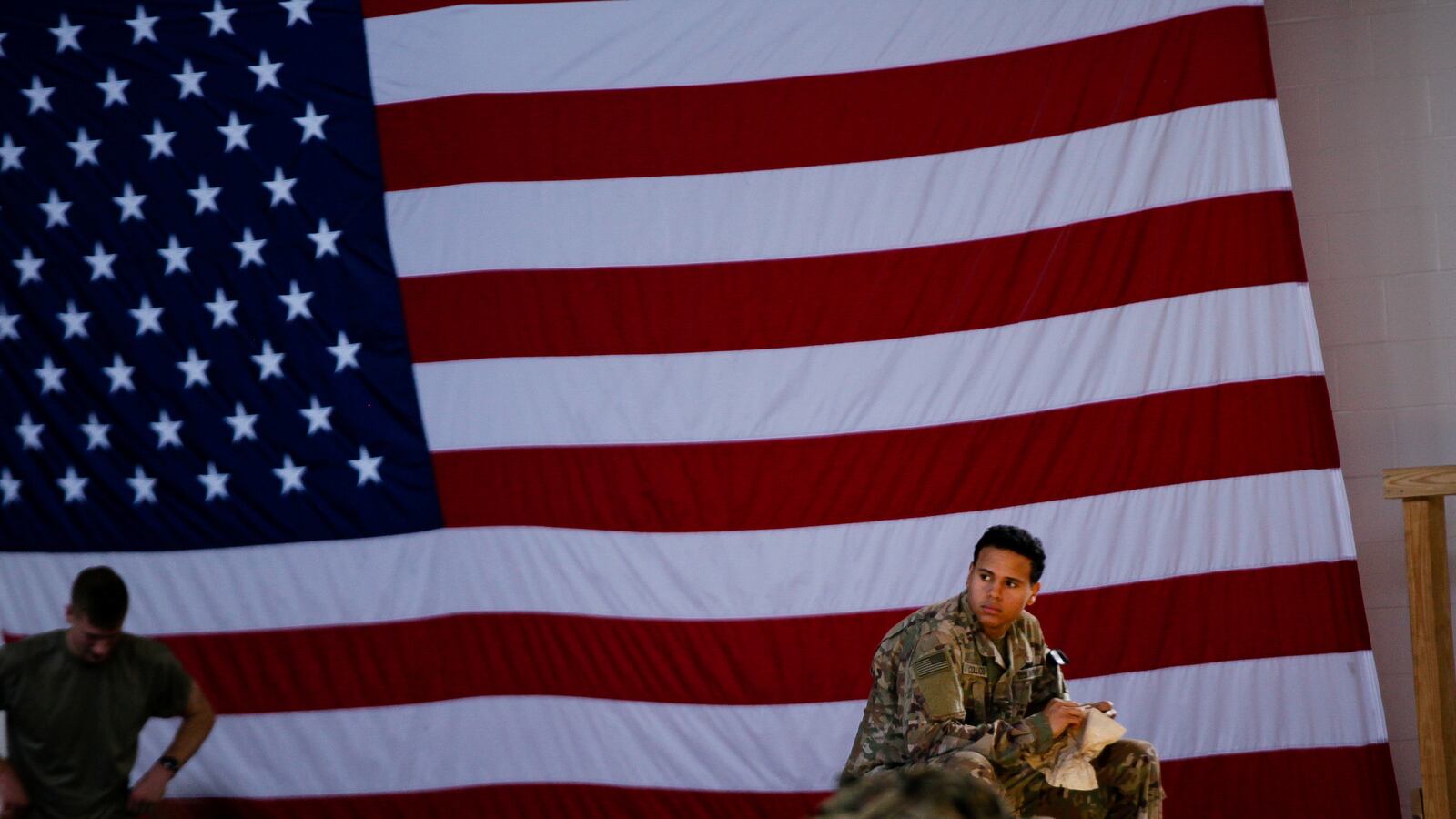Defense Secretary Mark Esper is looking at extending the deployment of a reaction force sent to the Middle East to counter Iran’s militia network, according to three sources and documents provided to The Daily Beast.
The 1st Brigade Combat Team of the 82nd Airborne Division arrived in the Mideast in January after Iranian-backed militias attacked the U.S. embassy in Baghdad. The roughly 3,000 paratroopers operate as an immediate reaction force, built to deploy on short notice to global hotspots.
The extended deployment, said to be requested by U.S. Central Command (CENTCOM) chief Gen. Kenneth “Frank” McKenzie, would signal that the military does not believe the spread of the novel coronavirus has reduced the risk of violent escalation with Iran’s Iraqi militia network.
But it’s causing confusion and alarm within the brigade, which is currently in Kuwait while Esper has ordered a 60-day freeze on troop movements overseas. Sources told The Daily Beast that seeking the deployment extension was McKenzie’s call, not a result of the freeze, although the extension would last through the end of the freeze.
“We hate that this was an unplanned deployment and that it’s impossible to have any certainty about when we will get home,” a soldier in the brigade told The Daily Beast.
“Even if it’s stupid and we have to deal with Iranian militias, it’s part of the job. But we just hate the uncertainty.”
It’s unclear when the brigade was supposed to return home. One source said their deployment was open-ended and at the pleasure of McKenzie. But a different source said that before Esper’s stop-movement order, the brigade had prepared for redeployment home. Ahead of a decision, the brigade is operating on the expectation that it will remain in the region until the end of May, which would roughly coincide with the anticipated end of the COVID-19 movement freeze.
On Monday, a notice from the brigade commander, Col. Andrew Saslav, said the decision on the brigade’s tour was in Esper’s hands after CENTCOM requested the extension.
“I know this is a crazy time, thanks for all you are doing. I know it is frustrating for you and your families, but we will get through it,” Saslav wrote in a message shared with The Daily Beast.
Representatives for the brigade and CENTCOM deferred comment to the Pentagon. “For operational security reasons, we are not going to discuss internal deliberations, planning factors or redeployment timelines of specific units,” said Cmdr. Sean Robertson, a Pentagon spokesperson.
McKenzie, in remarks earlier this month, has said he believes the public-health crisis acutely afflicting Iran makes the Islamic Republic more likely to escalate, not less. Following a rocket attack that killed two U.S. service members and a British ally, U.S. warplanes targeted weapons caches associated with Iraqi militias backed by Iran on Mar. 12, while Iraqi officials protested that the U.S. had killed Iraqi soldiers and policemen.
Tensions with Iran are one thing. There are tensions within the military about Iran as well. The U.S. commander in Iraq, Lt. Gen. Robert “Pat” White, has warned McKenzie and the Pentagon that American escalation against what’s known as the “Iran threat network” in Iraq jeopardizes the entire U.S. mission in Iraq. That warning was first reported by The New York Times and confirmed by The Daily Beast.
The background for the decision on the brigade, according to the Times, is a Pentagon directive on options for a broad campaign across Iraq against the militia network. That prompted Lt. Gen. White’s objections on the costs of such a campaign. The Times reported that its leading proponents are Secretary of State Mike Pompeo and national security adviser Robert O’Brien. Esper and the senior U.S. military officer, Army Gen. Mark Milley, are reportedly wary.
Targeting the Iranian “threat network” in Iraq represents mission creep. The U.S. has operated in Iraq since 2014–the latest installation of a U.S. involvement in Iraq stretching back to 1991–to attack the so-called Islamic State, not Iran. Since the U.S. in January assassinated Iranian external security chief Qassem Soleimani, Iraqi officials have rejected the use of its territory for a war by both Washington and Tehran.
The policy debate is less urgent to brigade service members than the disruption to their lives it has caused.
“With normal 9-12 month deployments, where you have months of notice beforehand, you know when you’re getting home,” the soldier said. “We still have no goddamn idea when. Next week, June, 6 months? Who knows.”







